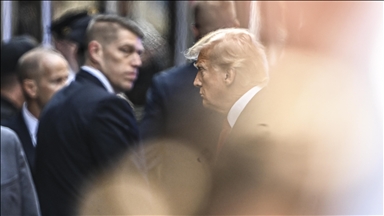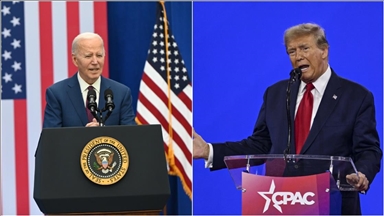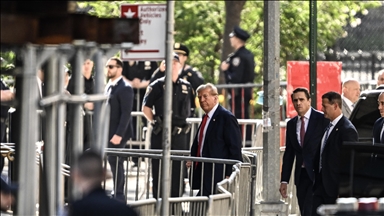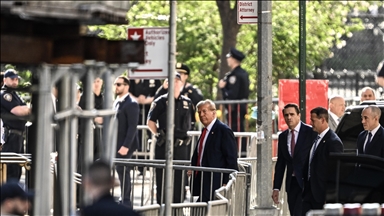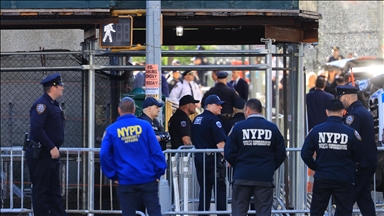US says Iran told proxies to avoid targeting its forces
Iran sends messages to Iran-sponsored militias not to move against American targets or civilians, says US vice president
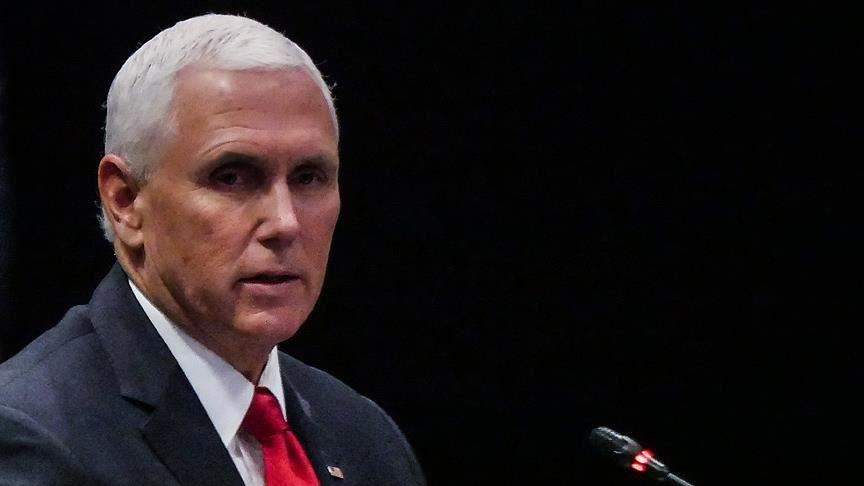
ANKARA
U.S. Vice President Mike Pence said Iran ordered its proxy groups to avoid hitting American service members and civilians in the wake of top Iranian general's death by a U.S. drone strike on Jan. 3.
Pence late Wednesday spoke to CBS News on a televised interview and weighed in on the recent tension with Iran.
When asked if he is convinced Iranian proxies won't come after Americans, Pence said Qasem Soleimani was in fact the primary leader of those Iranian-sponsored proxies, but added: "We are receiving some encouraging intelligence that Iran is sending messages to those very same militias not to move against American targets or civilians."
He also said: "Americans can rest easier tonight thanks to the leadership of President Donald Trump provided and the extraordinary courageous professionalism our military demonstrated over the last several weeks."
Thanks to the professionalism and the preparedness of American personnel, there were no American or Iraqi casualties after the Iranian missile attacks, he added.
"Our information as of this afternoon continues to be that Iran is standing down," he said.
Pence added that the U.S. is "not seeking a regime change but wants to see the regime change its behavior."
Responding to a question whether Iran intentionally missed the targets or they simply got lucky, he said they received intelligence about the missile attacks "several days" in advance and moved U.S. forces out of "harm's way."
He said Americans are safer now than before Soleimani was killed, and vowed to continue confronting Iran's "state-sponsored terrorism".
Soleimani, the head of the Revolutionary Guards' elite Quds Force, and nine others, including Abu-Mahdi al-Muhandis, the deputy leader of the Iraqi Hashd al-Shaabi group, were killed by a U.S. airstrike on Jan. 3 near Baghdad International Airport.
The strike followed a series of tit-for-tat recriminations between the U.S. and Iran-backed forces that began with the killing of an American contractor at a U.S. base in Iraq late December.
The U.S. retaliated with airstrikes on the Iran-backed militia it says is responsible for conducting the attack, killing dozens.
The U.S. Embassy in Baghdad was then attacked on Dec. 31 by a group of enraged militiamen and demonstrators.
U.S. officials have placed the blame for the attacks on its embassy and base squarely on Soleimani's shoulders, claiming if the airstrike that killed him was not carried out, hundreds more American lives would have been lost.
Make sanctions, not war
Trump on Wednesday also said his country sustained no military casualties when Iran's Islamic Revolutionary Guards Corps launched more than a dozen ballistic missiles in retaliation for the U.S. killing of Soleimani.
"Iran appears to be standing down, which is a good thing for all parties concerned, and a very good thing for the world," Trump said, flanked by top military and administration officials at the White House, reiterating that Iran would not be allowed to attain a nuclear weapon on his watch.
He did not signal any additional U.S. military action following Wednesday's strikes, but said his administration would impose additional "punishing" sanctions on Iran while Washington "evaluates options in response to Iranian aggression."
Details on the economic penalties were not immediately available.



